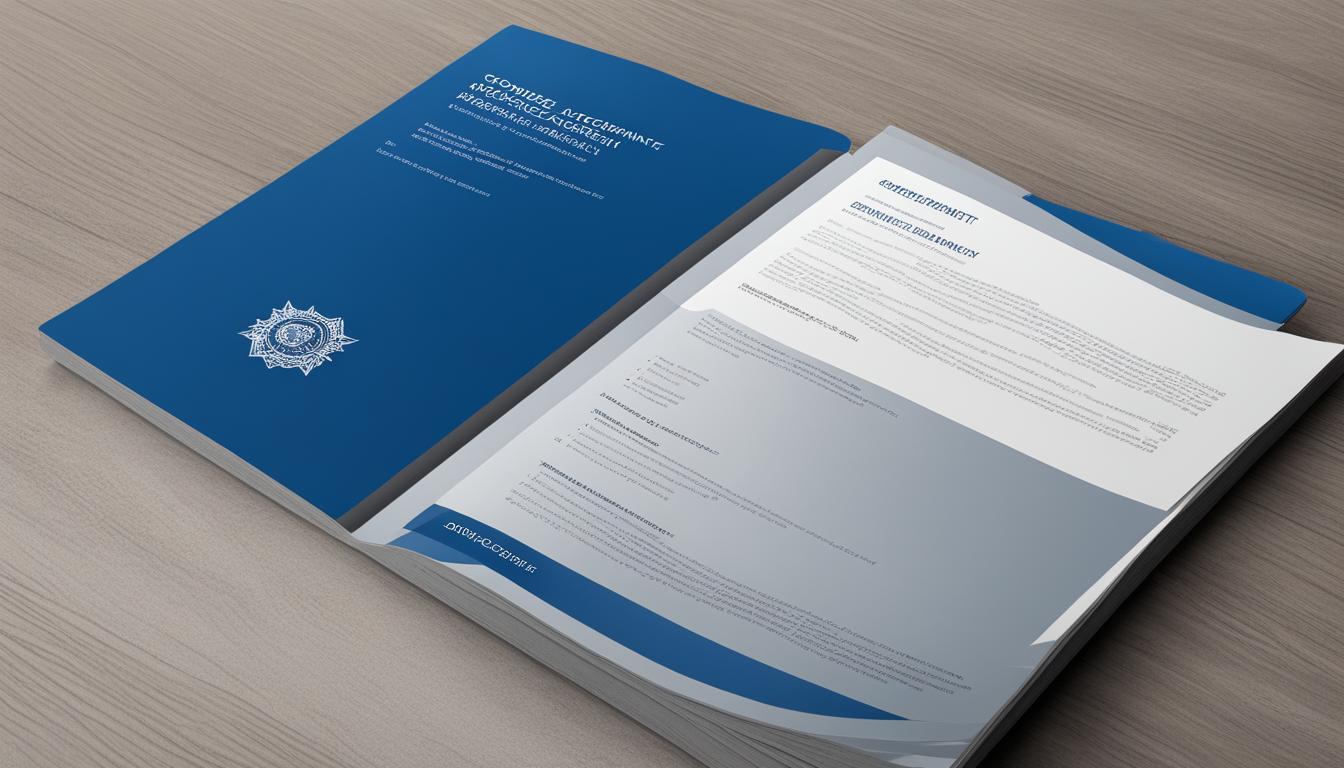How to Write a Legally Compliant Software License Agreement for Romania
How to Write a Legally Compliant Software License Agreement for Romania
According to the Romanian law, software licensing agreements play a crucial role in the digital revolution that is currently underway.
With the increasing reliance on computer programs and automation, it is essential for both developers and users to understand the legal aspects of these agreements.
In this article, we will explore the key considerations for drafting a software license agreement that ensures compliance, protects intellectual property rights, and reduces legal and contractual risks in Romania.
When it comes to software licensing terms in Romania, the regulations in this field are relatively general, leaving it up to the parties involved to determine the specific terms of the agreement.
It is important to be familiar with the terminology used, such as software copyrights, software intellectual property, software distribution rights, and software usage rights, as they define the rights and obligations of the parties.
This article will delve into the different types of software licensing agreements in Romania, including standard software agreements and custom software agreements.
We will also explore the legal basis for the protection of software license agreements, covering international, European, and internal regulations.
A software license agreement in Romania serves several key purposes, including defining the boundaries of software usage, establishing copyright protection, and outlining ownership rights.
We will discuss these purposes in detail, highlighting the importance of compliance with the agreement terms and conditions.
When drafting a software license agreement in Romania, there are certain elements that should be included, such as the scope of the agreement, licensing fees, and provisions for technical support and updates.
Templates and checklists can help ensure that all necessary elements are addressed.
Furthermore, a software license agreement in Romania imposes certain restrictions and limitations on the licensee, which must be followed to protect the intellectual property rights of the software owner.
Lastly, we will touch upon the inclusion of services, updates, and internet features in a software license agreement, emphasizing the importance of complying with the terms and conditions of the agreement and applicable laws and regulations.
Understanding Software License Agreement Terminology in Romania

In order to navigate the complexities of software license agreements in Romania, it is crucial to have a clear understanding of the terminology used in these agreements.
Terms such as software copyrights, software intellectual property, software distribution rights, and software usage rights play a significant role in defining the rights and obligations of both the software developer and the user.
Software copyrights refer to the exclusive rights granted to the creator of the software, protecting the expression of their ideas and preventing others from using, copying, or distributing the software without their permission.
These copyrights are essential for safeguarding the intellectual property of software developers in Romania.
Intellectual property rights, specifically related to software, encompass the legal protections and rights associated with the intangible assets developed by software developers.
These rights provide the software developer with control over the usage, replication, and distribution of their software.
Software distribution rights are the permissions granted by the software developer to the end user, outlining how the software can be shared, distributed, or sold.
These rights determine whether the software can be freely distributed or if specific restrictions or licensing agreements apply.
Lastly, software usage rights define the terms and conditions under which the end user can use the software.
These rights dictate the number of users, the scope of usage, any limitations or restrictions, and the responsibilities of the end user when utilizing the software.
| Term | Definition |
|---|---|
| Software Copyrights | The exclusive rights granted to the creator of the software, protecting their intellectual property |
| Software Intellectual Property | The legal protections and rights associated with the intangible assets developed by software developers |
| Software Distribution Rights | The permissions granted by the software developer to the end user, outlining how the software can be shared or sold |
| Software Usage Rights | The terms and conditions under which the end user can use the software |
Types of Software Licensing Agreements in Romania
In Romania, software licensing agreements can generally be classified into two main types:
- standard software agreements and
- custom software agreements.
Each type has its own unique characteristics and considerations.
Standard Software Agreements
A standard software agreement involves the licensing of pre-packaged, off-the-shelf software.
These agreements are commonly used for widely available software products that can be purchased by multiple users.
The terms and conditions of the agreement are typically predetermined by the software developer or vendor.
Standard software agreements often include provisions for software updates, technical support, and usage restrictions.
They are generally less complex and more cost-effective compared to custom software agreements.
Custom Software Agreements
Custom software agreements, on the other hand, involve the development and/or adaptation of software based on specific user requirements.
These agreements are tailor-made and negotiated between the software developer and the user.
Custom software agreements can be more complex and time-consuming to draft, as they require a thorough understanding of the user’s needs and detailed specifications for the software.
The terms and conditions of a custom software agreement may cover aspects such as software development milestones, ownership of intellectual property, confidentiality, and payment terms.
Both types of software licensing agreements require careful consideration and drafting to ensure that all legal and contractual aspects are addressed.
It is important for both software developers and users to seek legal advice and ensure compliance with Romanian laws and regulations when entering into software licensing contracts.
Table: Comparison of Standard and Custom Software Agreements
| Aspect | Standard Software Agreements | Custom Software Agreements |
|---|---|---|
| Predetermined Terms | Yes | No |
| Software Development | N/A | Involved |
| Ownership of Intellectual Property | Developer/Vendor | Agreed upon |
| Confidentiality | Standard | Negotiable |
| Payment Terms | Standard | Negotiated |
Table: Comparison of Standard and Custom Software Agreements
The Legal Basis for Software License Agreement Protection in Romania
When it comes to software license agreements in Romania, it is essential to understand the legal basis for their protection.
The country’s software licensure law, along with international and European regulations, establishes the framework for safeguarding these agreements and the intellectual property rights associated with them.
Under Romanian law, software is considered a form of intellectual creation and is protected by copyright laws.
The software copyright law in Romania is guided by international agreements such as the Berne Convention and the TRIPS Agreement.
These agreements establish the principles for copyright protection of software as intellectual creations and provide a solid legal foundation for software license agreements.
In addition to international agreements, European directives further contribute to the legal protection of software license agreements in Romania.
Directive 2009/24/EC focuses specifically on the legal protection of computer programs, while Directive 96/9/EC provides guidance on copyright protection for databases.
Table: Legal Basis for Software License Agreement Protection in Romania
| Legislation | Description |
|---|---|
| Berne Convention | An international agreement that establishes principles for protecting software copyright as intellectual creations. |
| TRIPS Agreement | An international agreement that provides intellectual property protection, including software copyright. |
| Directive 2009/24/EC | A European directive that focuses on the legal protection of computer programs. |
| Directive 96/9/EC | A European directive that provides guidance on copyright protection for databases. |
Compliance with these laws and regulations is crucial to ensure the validity and enforceability of software license agreements in Romania.
Developers and users alike must understand the legal requirements and obligations associated with software licensing to protect their rights and mitigate potential risks.
By adhering to the software licensure law in Romania, parties involved in software license agreements can create a strong legal foundation that promotes fair usage, protects intellectual property, and ensures compliance with the country’s legal framework.
The Purpose of a Software License Agreement in Romania
A software license agreement in Romania serves several key purposes.
First and foremost, it provides a legal framework that defines the boundaries of software usage, ensuring that both the licensor and the licensee understand their rights and obligations.
It outlines the terms and conditions under which the software can be used, including installation and user engagement guidelines.
By clearly stating these terms, the agreement helps prevent misunderstandings and disputes.
The software license agreement also plays a crucial role in protecting intellectual property rights.
It communicates the copyright protection applicable to the software and clarifies ownership rights.
This ensures that the licensor’s rights are safeguarded and that the licensee is aware of the restrictions on copying, modification, and redistribution of the software.
Furthermore, the agreement sets the duration of the agreement, specifying how long the licensee can use the software.
In addition, a software license agreement in Romania establishes the terms and conditions that must be met for compliance.
It sets forth the obligations of the licensee, such as adhering to usage restrictions and not using unauthorized software or hardware.
By clearly outlining these requirements, the agreement helps ensure that the software is used in accordance with the licensor’s intentions.
This protects the licensor’s interests, reduces legal and contractual risks, and promotes a mutually beneficial relationship between the parties involved.
Key Elements of a Software License Agreement in Romania:
- Scope of the agreement, covering the functionality, costs, and performance of the software
- Territorial restrictions on software usage and any third-party access arrangements
- License fees and payment terms
- Technical support requirements and provisions
- Update and maintenance provisions
| Key Benefits of a Software License Agreement in Romania |
|---|
| Defines the boundaries of software usage |
| Protects intellectual property rights |
| Sets the duration of the agreement |
| Establishes compliance requirements |
| Reduces legal and contractual risks |
Important Elements of a Software License Agreement in Romania
When drafting a software license agreement in Romania, it is essential to include key elements that ensure clarity, compliance, and protection for all parties involved.
These elements not only define the scope of the agreement but also address important considerations such as territorial restrictions, license fees, technical support, and updates.
By using software license agreement templates in Romania and following a comprehensive checklist, you can ensure that all necessary elements are covered.
Elements to Include in a Software License Agreement
- Scope of Agreement: Clearly define the functionality, costs, and performance expectations of the software.
- Territorial Restrictions: Specify any limitations on where the software can be used or accessed.
- License Fees: Outline the payment terms and fees associated with the software license.
- Technical Support: Define the level of support the licensor will provide to the licensee.
- Updates and Maintenance: Address how updates and maintenance will be handled, including any associated costs or responsibilities.
By including these elements in your software license agreement, you can ensure that both parties have a clear understanding of their rights and obligations.
Utilizing templates and checklists can help streamline the drafting process and ensure that all necessary elements are included.
Here is a sample template for a software license agreement in Romania:
| Section | Description |
|---|---|
| 1. Parties | The names and contact information of the licensor and licensee |
| 2. Scope of Agreement | Details on the functionality and purpose of the software |
| 3. License Grant | The rights and limitations of the licensee to use the software |
| 4. License Fees | The payment terms and fees associated with the license |
| 5. Support and Maintenance | Details on the technical support and maintenance services provided |
| 6. Updates and Upgrades | The process for receiving updates and upgrades to the software |
| 7. Termination | The conditions under which the agreement may be terminated |
| 8. Confidentiality | The obligations of the parties to maintain the confidentiality of the software |
| 9. Governing Law | The jurisdiction and laws that govern the agreement |
Remember, the specific terms and language used in your software license agreement may vary depending on the unique circumstances of the agreement.
It is always recommended to seek legal advice to ensure that your agreement complies with Romanian laws and regulations.
Restrictions and Limitations in a Software License Agreement in Romania

A software license agreement in Romania imposes certain restrictions and limitations on the licensee.
These restrictions are designed to protect the intellectual property rights of the software owner and ensure compliance with applicable laws and regulations.
By understanding and adhering to these restrictions and limitations, licensees can avoid legal and contractual consequences.
Types of Restrictions
Software license agreements in Romania may include various types of restrictions, depending on the specific terms agreed upon by the parties involved. Some common restrictions include:
- Limitations on installations: The agreement may specify the number of installations allowed for the licensed software. Licensees may be required to purchase additional licenses for multiple installations.
- Restrictions on copying: Licensees may be prohibited from making copies of the software without prior authorization from the software owner.
- Prohibition of reverse engineering: Reverse engineering, the process of decompiling or disassembling the software to understand its code or algorithms, may be strictly prohibited in the license agreement.
- Use of unauthorized software or hardware: Licensees may be restricted from using the licensed software on unauthorized devices or with unauthorized hardware.
Limitations on Transfer and Sub-licensing
Software license agreements in Romania often include restrictions on transferring or sub-licensing the software.
These restrictions aim to protect the rights and interests of the software owner.
Licensees may be required to seek permission from the software owner before transferring or sub-licensing the software to another party.
Ensuring Compliance
Compliance with the restrictions and limitations in a software license agreement is crucial for licensees in Romania.
Failure to comply may result in legal consequences, including breach of contract claims and intellectual property infringement lawsuits.
Licensees should carefully review the terms of the agreement, seek legal advice if necessary, and strictly adhere to the specified restrictions and limitations to ensure compliance.
| Restriction | Description |
|---|---|
| Limitations on installations | The agreement may specify the number of installations allowed for the licensed software. Licensees may be required to purchase additional licenses for multiple installations. |
| Restrictions on copying | Licensees may be prohibited from making copies of the software without prior authorization from the software owner. |
| Prohibition of reverse engineering | Reverse engineering, the process of decompiling or disassembling the software to understand its code or algorithms, may be strictly prohibited in the license agreement. |
| Use of unauthorized software or hardware | Licensees may be restricted from using the licensed software on unauthorized devices or with unauthorized hardware. |
By understanding and complying with the restrictions and limitations outlined in a software license agreement in Romania, licensees can ensure proper usage of the software while respecting the intellectual property rights of the software owner.
Services, Updates, and Internet Features in a Software License Agreement in Romania
According to the Romanian Law, a software license agreement encompasses not only the core terms of software usage but also provisions related to services, updates, and internet features.
These additional elements play a crucial role in ensuring the smooth operation and continued functionality of the licensed software.
As a licensee, you may be required to consent to automatic updates and upgrades to maintain the software’s security, performance, and compatibility with evolving technologies.
By agreeing to these provisions, you can benefit from the latest features and improvements developed by the software provider, ultimately enhancing your overall user experience.
It is important to understand that certain services, updates, and internet features may depend on your responsibility to obtain and maintain appropriate internet services.
Your compliance with any applicable terms and conditions associated with these services is essential to fully leverage the software’s capabilities and remain in adherence to the agreement requirements.
By including services, updates, and internet features in the software license agreement, both the licensor and licensee can establish a clear framework for ongoing support, ensure software compatibility, and maintain a mutually beneficial relationship throughout the licensing process in Romania.
Software License Agreement FAQ
1. What is a software license agreement?
A software license agreement is a legal contract between a licensor and a licensee that outlines the terms and conditions for the use of software programs. It grants the end user the right to use the software while specifying the limitations and restrictions.
2. How does a software license agreement apply in Romania?
In Romania, a software license agreement is governed by the Romanian law, particularly related to intellectual property rights, trade secrets, and copyright and related rights. It is essential to ensure compliance with the legal framework and seek legal expertise from Romanian lawyers or a reputable law firm in Bucharest.
3. What are the key clauses in a software license agreement?
A software license agreement typically includes clauses related to the grant of the license, permitted use of the software, copyright protection, terms and conditions, and unauthorized use. It is crucial to thoroughly negotiate and draft the contractual agreements to protect the rights of the licensor and the licensee.
4. What legal aspects should be considered in a software license agreement with a Romanian entity?
When dealing with a legal entity in Romania, considerations should include contractual and copyright law specific to the Romanian market. It may involve due diligence on intellectual property rights, geographical restrictions, and compliance with the European Union regulations.
